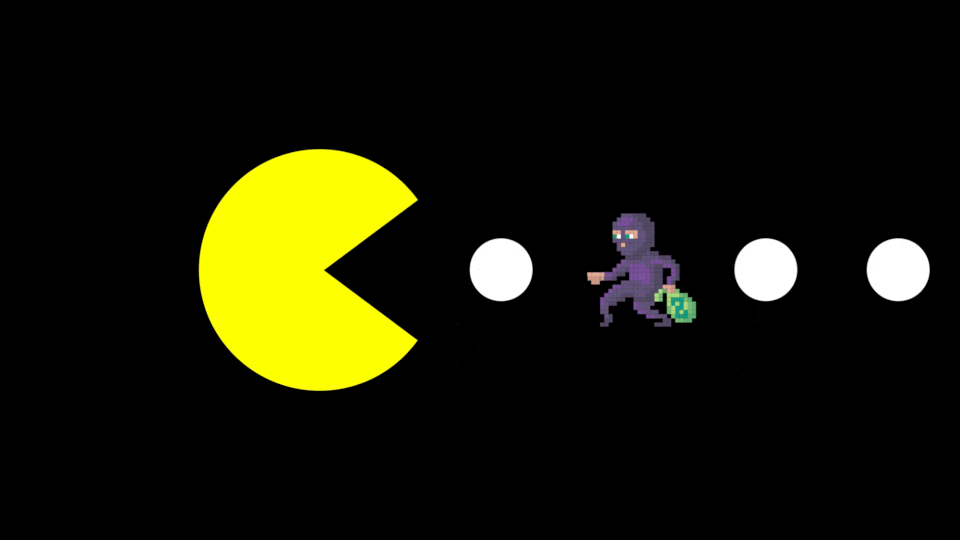Happy Friday!
The last few months have been a strange time at work for me, because everything I’ve been working on has a much longer lead time than usual: Atlantic print magazine pieces, a Radio 4 comedy series that got commissioned last year, the fifth series of the the Spark, a script, and of course The Book. I worry constantly that people will think that I’ve died or been permanently cancelled. (The latter is perhaps a new euphemism for the former. Cancelled by Time Itself. Gone to the Great Substack in the Sky.)
I think lots of journalists feel this way, which is why so many succumb to Twitter addiction. (Caitlin Flanaghan’s recent piece on this is very funny: ‘I texted the editor of this magazine: “Paul Krugman’s after me lucky charms!” The editor texted back, “I wish I knew what this meant.”’) The urge to howl BEHOLD ME, I EXIST, I LIVE ONLY IN THE GOLDEN MOMENT OF YOUR APPLAUSE at an indifferent universe is very strong in a trade which selects heavily for self-important narcissists.
Anyway, the good news is that the Spark is back on July 23, and I think it’s going to be a great series. In the second episode, my interviewee said something 25 minutes in which absolutely floored me. Genuine marmalade dropper. The first episode is with Henry Marsh, whose books on neurosurgery (and risk, and arrogance, and fear) are so honest and humane. Henry has a terminal diagnosis—advanced prostate cancer—and he is campaigning to change the law on assisted dying. The episode will be broadcast on Friday morning, 23 July, and available afterwards on BBC Sounds.
Helen
PS. If you enjoy the Bluestocking, please forward it to someone else you think you would like it, or do howl into the Twitter void about it. I live only in the golden moment of your applause.
Why Are Gamers So Much Better Than Scientists at Catching Fraud? (Atlantic)
In the competitive pursuit of speedrunning, gamers vie to complete a given video game as quickly as humanly possible. It’s a sport for the nerdier among us, and it’s amazingly popular: Videos streaming and recording speedruns routinely rack up seven-figure view counts on Twitch and YouTube. So when one very prominent speedrunner—a U.S. YouTuber with more than 20 million subscribers who goes by the nom de game “Dream”—was accused in December 2020 of faking one of his world-record runs of the block-building game Minecraft, the online drama exploded like a batch of TNT.
Specifically, Dream reported that he’d finished Minecraft in just over 19 minutes, faster than all but four players had ever managed it, because of an incredible stretch of good luck. Moderators at the website speedrun.com, who preside over such world-record attempts, begged to differ. According to their impressively detailed probability analysis, Dream’s luck was just too good. He was the equivalent of a roulette player who gets their color 50 times in a row: You don’t just marvel at the good fortune; you check underneath the table.
Very nerdy and enjoyable piece by Stuart Ritchie on why unpaid mods in videogames communities are better at spotting fraud than scientists. Straightforward outright data fabricators in research disciplines often get away with it for a really, really long time. The peer-review system just isn’t set up to catch bad-faith cheaters.
(Incidentally, how great is the Atlantic art desk? Every time they get given a conceptual piece, they nail the illustration.)
What Are Critics For? (Fintan O’Toole, The Economist, 1996)
“It is also essential that critics do not see themselves as specialists, that their opinions remain individual and do not become the conventional wisdom of the insider. In academia, critical theory has become an increasingly impenetrable substitute for real engagement with works of art. . . Specialised languages, exclusive jargons, internalised passions, are the order of the day. A key task of critics is to disrupt that order by keeping alive the belief that ideas about art are public property.
That, in essence, is what critics are for. They are for refusing to take things on their own terms. They are for testing the claims that artists make for their work and that their press agents make on their behalf. They are, above all, for making connections--not just the obvious connection between artist and audience, but also the more angular, more arguable connections between art and society.”
Good critics keep art healthy.
Meet the Systems on TikTok (Input Magazine)
Asher, however, is not part of a typical influencer collective. He is one of many members of a 29-person “system,” all of whom share a single body, brain, and life. Each person, or “alter,” in the system is a distinct form of consciousness. This group of identities live together in the body of a 31-year-old man diagnosed with dissociative identity disorder (DID), previously known as multiple personality disorder. The A System’s account — by far the biggest in the DID TikTok community — has amassed 1.1 million followers since February 2021.
A few months ago I thought about pitching a piece called “Whatever Happened to Otherkin?”—all those people in the early 2010s on Tumblr etc who said they were actually dragons or cats or fairies trapped in human bodies, and so on—but I guess we have the answer. The symptom pool has a new outlet.
This piece probably needed to be written with 8 per cent more scepticism, however, because it contains lines like this: “Although all the influencers interviewed for this piece have links to their respective Venmo and PayPal accounts listed on their profiles, they reject charges that they’re doing this to make some cash.”
Culture Wars Are Long Wars (Scholars Stage)
Generational churn helps account for the “gradually, then suddenly” tempo of social revolution. Cultural insurgents win few converts in their own cohort. They can, however, build up a system of ideas and institutions which will preserve and refine the ideals they hope their community will adopt in the future. The real target of these ideas are not their contemporaries, but their contemporaries’ children and grandchildren. Culture wars are fought for the hearts of the unborn. Future generations will be open to values the current generation rejects outright.
[…]
America’s future is godless not because the God-fearing were convinced of the errors of their faith, but because their children, grandchildren, and great-grandchildren never adopted their faith to start out with. Cultures do not change when people replace old ideas with new ones; cultures change when people with new ideas replace the people with old ones.
Hell of a graph here (in both senses of the word). This piece is about culture wars more broadly, but I think it’s very applicable to feminism in particular. The first and second waves were incredibly attuned to the need to change laws (the vote, equal pay) and institutions (getting women into universities, sitting as magistrates, into the police).
In the last few years, we’ve seen a resurgence of that approach, for example with Samira Ahmed’s pay claim—itself enabled by Harriet Harman’s push for companies to reveal pay data—and industrial tribunals, judicial reviews, and FOIs of the advice given to government departments. Nerd Feminism will always be needed, because there’s no point winning the air war and losing the ground campaign.
Quick Links
This was pretty much the only hotel left in Brighton for Labour party conference and I was this close to booking it on cost grounds alone. (Though I am not entirely sure it is “perfect for a work-friendly stay,” Booking.com.) Is being flogged in stirrups by someone in an erotic clown mask better or worse than the rest of Labour party conference? Discuss.
This experience of a lesbian couple who got pregnant at the same time is very sweet, but I do feel sorry for John, who must have been milked to a standstill.
“She discovered the trail at Erwin Park after returning home to North Texas. Over the next two years her race distances ramped up quickly, from 50 miles to 100K. Karen, who had once made fun of Brandy’s cracked and blistered feet, was now the one peeling off toenails, running her fingers over the watery bubble of a blister. The fifth anniversary of her children’s death was the first time she ran 100 miles. As the hours went by, she checked her watch, trying to place each of her children’s last moments. This is when he was pouring the gas, this is when he texted.” (Runner’s World)
“Screenshots of Bagram [in Afghanistan] after the troops left show low-level Pokemon, normally easily defeated, stuck guarding locations, perhaps indefinitely. A tiny Lotad has defended the former Warrior Chapel at Bagram for 10 days, while a lowly Aron has defended a memorial to a fallen service member for about two weeks.” (Stars and Stripes)
For those of you who enjoyed last week’s Tom Hiddleston content (ie, from looking at the stats, most of you), here is Phil Wang editing himself into that vitamin commercial.
“I’m glad most people aren’t Nazis, but I would like them to be consistent, principled non-Nazis, who are able to remain non-Nazi for reasons other than that they scrupulously avoid thinking about the parts of their principles that inevitably imply Nazism.” Scott Alexander takes on the question of why Jewish people are over-represented among Nobel prize winners. (Astral Codex Ten)
The Carters made it to 75 years of marriage (New York Times).
Emerging/young journalists: Eleanor Halls of the Telegraph has posted some (successful) pitch emails she’s received, which are worth a read.
“Cat Person” And Me (Slate). How the viral short story drew on someone’s real life experiences. Not sure how to feel about this tbh.
Bluestocking recommends: Jeremy Clarkson’s Amazon programme about buying a farm, Clarkson’s Farm, has taught me a lot about agriculture (mostly that it’s incredibly hard work). I also feel like it’s a template for selling environmental awareness to people who hate leftwing hairshirt-ism: here’s why you should buy seasonally and locally, because it keeps Kaleb the tractor wizard and Gerald the indecipherable dry stone waller in jobs.
Also, this is what everyone I know is getting for Christmas.
Correction: in the last Bluestocking I referred to Berthe Morisot as the only female Impressionist, which was wrong. Thanks to the several readers who got in touch, and particularly to Jennifer H for the link to this piece on Mary Cassatt.
See you next time!







